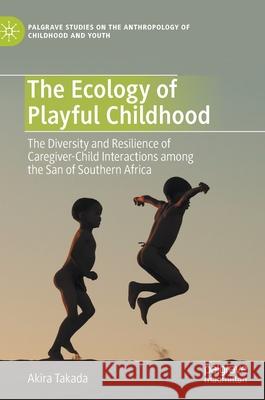The Ecology of Playful Childhood: The Diversity and Resilience of Caregiver-Child Interactions Among the San of Southern Africa » książka
topmenu
The Ecology of Playful Childhood: The Diversity and Resilience of Caregiver-Child Interactions Among the San of Southern Africa
ISBN-13: 9783030494384 / Angielski / Twarda / 2020 / 244 str.
The Ecology of Playful Childhood: The Diversity and Resilience of Caregiver-Child Interactions Among the San of Southern Africa
ISBN-13: 9783030494384 / Angielski / Twarda / 2020 / 244 str.
cena 403,47
(netto: 384,26 VAT: 5%)
Najniższa cena z 30 dni: 385,52
(netto: 384,26 VAT: 5%)
Najniższa cena z 30 dni: 385,52
Termin realizacji zamówienia:
ok. 22 dni roboczych
Bez gwarancji dostawy przed świętami
ok. 22 dni roboczych
Bez gwarancji dostawy przed świętami
Darmowa dostawa!
Kategorie:
Kategorie BISAC:
Wydawca:
Palgrave MacMillan
Seria wydawnicza:
Język:
Angielski
ISBN-13:
9783030494384
Rok wydania:
2020
Wydanie:
2020
Numer serii:
000824501
Ilość stron:
244
Waga:
0.47 kg
Wymiary:
21.01 x 14.81 x 1.6
Oprawa:
Twarda
Wolumenów:
01
Dodatkowe informacje:
Wydanie ilustrowane











